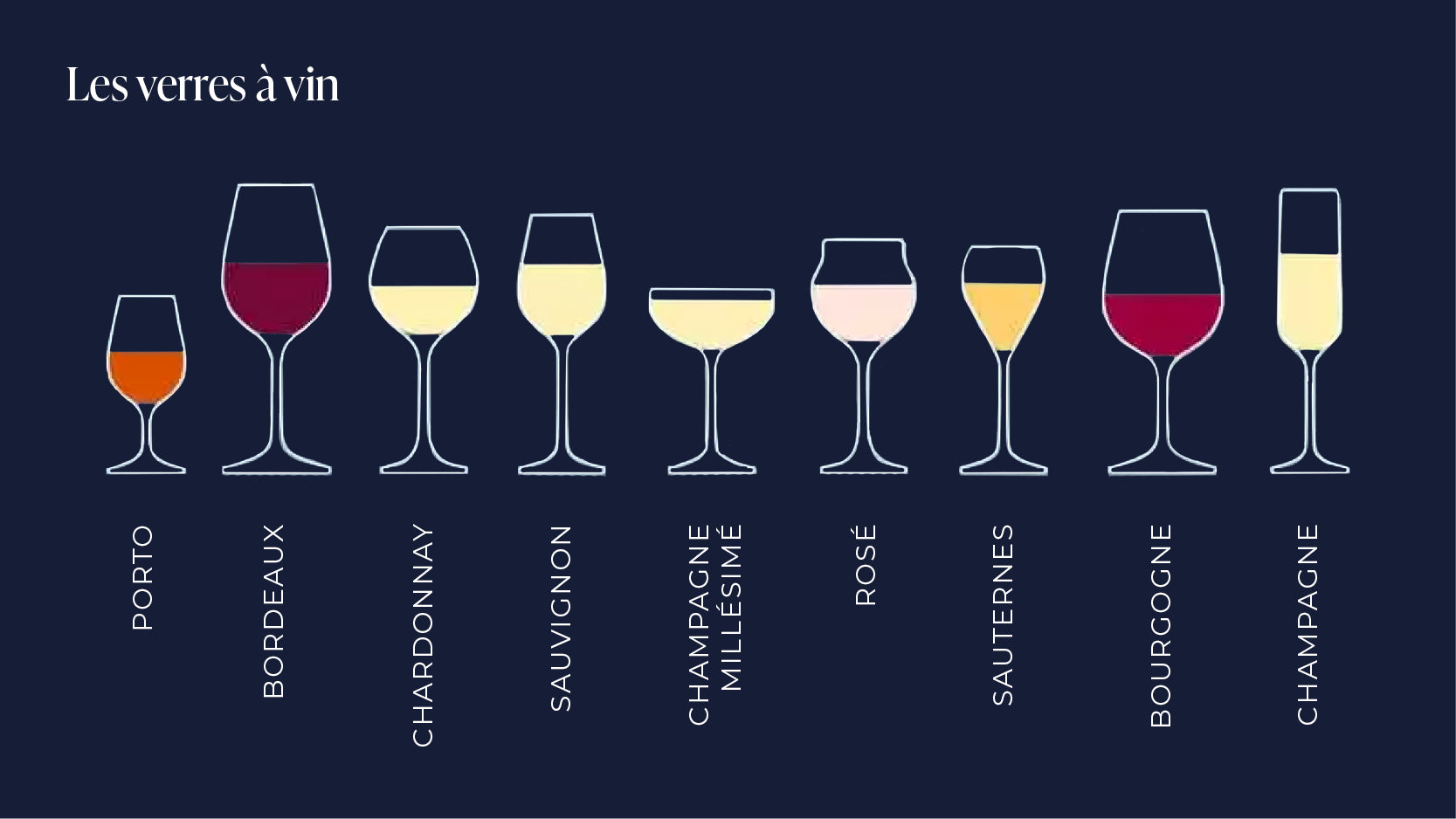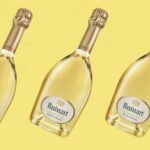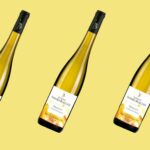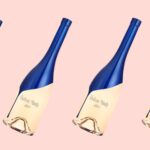The choice of wine glasses has a direct influence on the tasting experience. Each glass shape is designed to best reveal the wine's aromas, texture and structure.For optimal wine service, it's important to adapt your glass to the type of wine you're tasting.
Why is the choice of glass so important? What tasting accessories should you choose to fully appreciate a red, white or sparkling wine? Here's a detailed guide to choosing the right glass for the right wine.
Why is the choice of wine glasses essential?

Glass design influences the perception of aromas and flavors. Three elements are decisive:
- The shape of the glass: this directs the wine towards specific areas of the mouth, modifying the perception of flavours.
- Aperture: a narrower neck concentrates aromas, while a wider aperture promotes aeration.
- Size: a large glass gives the wine more room to oxygenate and release its aromas.
Which glass for which type of wine?
1. Red wine glasses: give priority to aeration
Red wines often have a strong tannic structure and require a good oxygenation to reveal their complexity.
- Glass in Bordeaux
- Large opening and capacity.
- Ideal for powerful wines such as Cabernet Sauvignon or Merlot.
- Promotes oxygenation and softens tannins.
- Burgundy glass
- Rounder, wider cut.
- Suitable for delicate wines such as Pinot Noir.
- Amplifies aromas and softens acidity.
- Universal glass
- Suitable for different styles of red wine.
- A good alternative for a varied tasting experience.
2. White wine glasses: finesse and freshness
White wines require less oxygenation than reds. Their glass should concentrate aromas and retain freshness.
- Classic white wine glass
- Smaller format than red wine.
- Ideal for fresh, light wines such as Sauvignon Blanc.
- Preserves fruity and floral aromas.
- Aromatic white wine glass
- Slightly flared shape to accentuate aromas.
- Suitable for wines such as Gewurztraminer or Viognier.
- Chardonnay glass
- Wider cut to allow light oxygenation.
- Recommended for fuller, more complex white wines.
3. Sparkling wine glasses: finesse and elegance
The choice of champagne glass is crucial to preserving effervescence and expressing aromas.
- Champagne flute
- Long, narrow glass.
- Promotes bubbles and preserves freshness.
- Perfect for young, lively champagnes.
- Champagne glass
- Wide, shallow glass.
- Less recommended as it quickly dissipates bubbles.
- Ideal for cocktails such as the Bellini or Kir Royal.
- Tulip champagne glass
- The ideal alternative between the flute and the cup.
- Allows better aromatic expression while preserving effervescence.
4. Rosé wine glasses: between white and red
Rosé wines need a glass that enhances their freshness while amplifying their fruity aromas.
- Standard rosé wine glass
- Slightly flared shape.
- Suitable for light, fruity rosés.
- Preserves freshness and acidity.
- Gourmet rosé glass
- Wider cut for better ventilation.
- Ideal for gourmet rosés wines, such as those from Provence.
Mistakes to avoid when choosing wine glasses
- Use an unsuitable glass: a powerful red wine in a champagne flute won't reach its full potential.
- Opt for glasses that are too thick: this alters the perception of the wine's aromas and texture.
- Filling the glass incorrectly: a glass filled to the brim doesn't allow the wine to aerate properly.
- Use colored or decorated glasses: this prevents you from appreciating the wine's color.
How to care for your wine glasses
Well-maintained glasses enhance the tasting experience. Here are a few practical tips:
- Hand-wash with warm water and a soft cloth.
- Avoid scented detergents, which can alter the wine's aromas.
- Dry immediately with a clean cloth to avoid traces of limescale.
- Store glasses upright rather than suspended, to limit dust deposits.
Essential wine glasses and tasting accessories
For optimal tasting, certain accessories complement wine glasses:
- Decanter: useful for young, tannic red wines.
- Hermetic stopper: keeps wine open longer.
- Wine thermometer: guarantees wine service at the ideal temperature.
- Aérateur: accelerates oxygenation and enhances the wine's expressiveness.
Conclusion
Choosing the right wine glass is essential to fully appreciate the qualities of a wine. Each type of glass plays a key role in the expression of aromas and the perception of flavors.
Whether for a powerful red wine, a fresh white or a sparkling champagne, the right glass enhances the tasting experience.
If you enjoyed this article, please read the following article "Understanding the differences between Champagne vintages", which may also be of interest to you!





